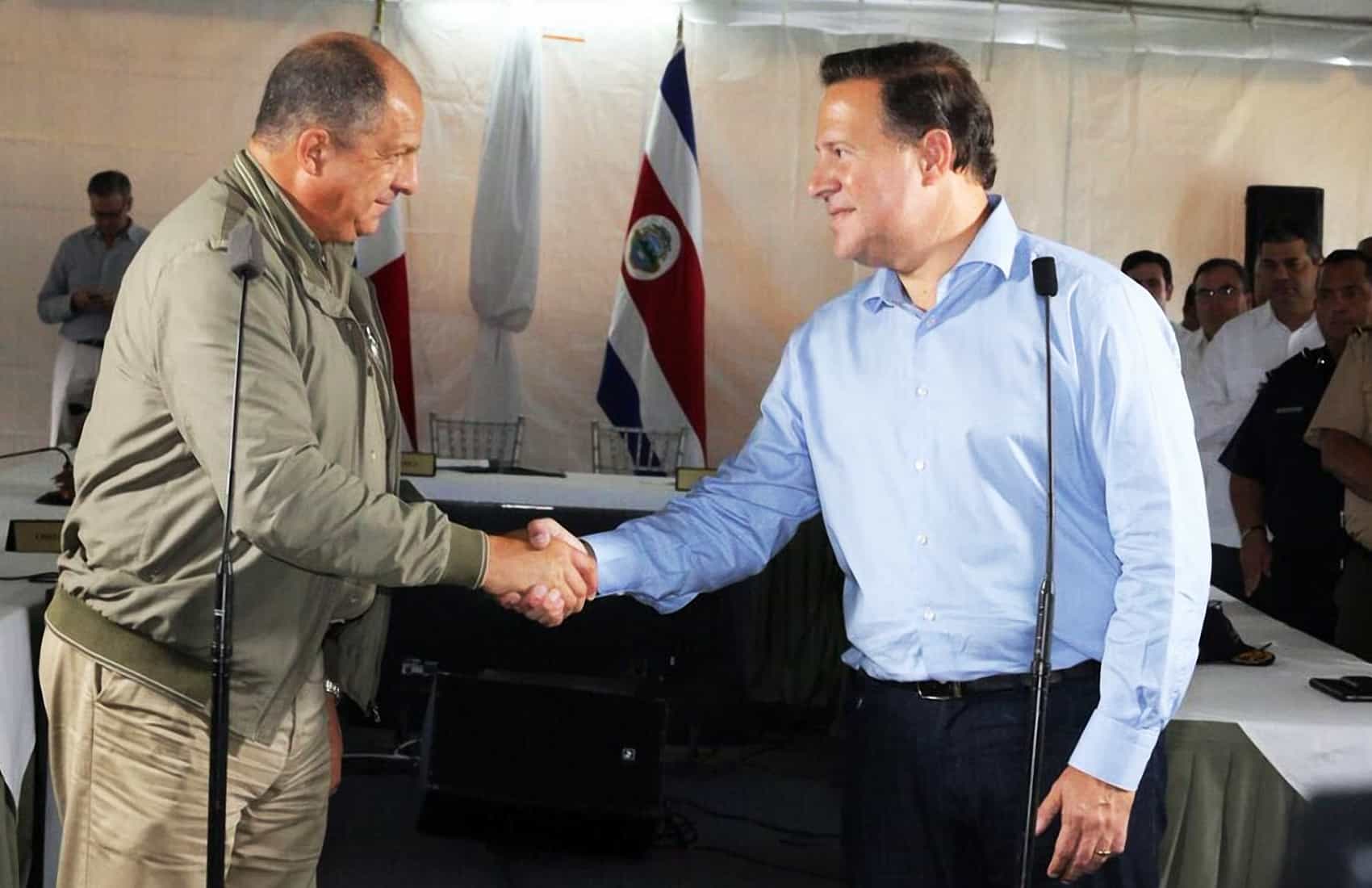The presidents of Panama and Costa Rica, Juan Carlos Varela and Luis Guillermo Solís, called on Latin American countries to host irregular migrants currently stranded in camps in both countries.
Thousands of migrants from Haiti, Cuba, Asia and Africa are stuck at various camps hoping to resume their trip to the U.S. in search of better lives.
They are unable to continue as Nicaragua closed its borders in November. The government even sent military forces to its border with Costa Rica to prevent migrants from entering its territory.
“Finding a definitive solution is not only in our hands. We need cooperation from other countries in the region,” Varela said Friday following a five-hour meeting with Solís in Boquete, a district near the border with Costa Rica.
The presidents confirmed that they have begun talks with various countries to distribute irregular migrants in a safe manner.
“We’ve had informal talks with presidents of various countries, but we’re still in a very preliminary stage,” Solís said. The presidents, however, declined to mention which countries, in order to “avoid unnecessary pressure on them,” Solís said.
Varela said that they also agreed to promote the creation of a voluntary fund in the region to help countries accepting these migrants.
The presidents also signed an agreement on security, aimed at promoting actions against drug trafficking and other forms of international crime. The agreement increases coordination among security, immigration and customs agencies from the two countries.
Foreign ministers of both governments also signed a bilateral agreement outlining measures to better identify migrants.
Caribbean migrants on their way
Panama reported that currently there are some 4,000 migrants, mostly Haitians, in that country. They say the figure likely will increase.
Varela said according to intelligence information, “a significant number of Haitian migrants” left Brazil recently prompted by the political and economic crisis in that country.
Panama officials think the number also will increase due to the recent emergency caused by Hurricane Matthew that left 400 people dead in the Caribbean island.
“Their goal still is to reach the U.S. through Central America, which will worsen the situation here,” he said.
Solís agreed with Varela and urged help to control these migratory flows in the region. “This is not a phenomenon that will disappear soon. It is here to stay,” he said.
There are some 4,500 migrants camped out in areas near Costa Rica’s border with Nicaragua, Casa Presidencial reported last week.
Some of them are currently being relocated to a new shelter in La Cruz, Guanacaste.






